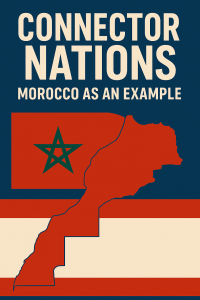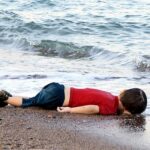In a world marked by geopolitical tension and fractured alliances, a largely unnoticed gesture during France’s Bastille Day on July 14 carried heavy symbolic weight. Indonesian President Prabowo Subianto marched beside Emmanuel Macron — a statement in favor of barrier-free cooperation and diplomacy over division. Yet global politics knows no ideological borders: weeks earlier, Subianto had met with Vladimir Putin in St. Petersburg; just hours after marching in Paris, he was signing strategic agreements with Donald Trump. All while maintaining strong ties with China and recently joining the expanded BRICS group. This is the face of modern diplomacy: a dynamic equilibrium where contradiction becomes a strategic art.
Indonesia is not alone. Along with Mexico, Poland, Vietnam, and Morocco, it belongs to what Bloomberg Businessweekin 2023 termed the “connector nations” — countries that, without being superpowers, have positioned themselves as critical players in the global system, acting as logistical, commercial, and diplomatic bridges between opposing powers. Among these emerging actors, Morocco stands out not only for its strategic location between Europe, Africa, and the Arab world, but also for its ability to shape global balance.
During Morocco’s Throne Day, former UK Minister and current member of the House of Lords, Henry Bellingham, made it clear: “His Majesty King Mohammed VI has wisely led Morocco’s democratic and economic development, positioning it as a leading country on the African continent.” This was no diplomatic flattery. It was a rare political acknowledgment from a Europe that still too often looks southward through outdated lenses.
Over the past 25 years, Morocco has undergone a deep transformation. Not without challenges, but steady and genuine. It has implemented constitutional reforms, expanded political pluralism, and reaffirmed religious freedom — all within a volatile regional context and under external pressure. Morocco doesn’t seek paternalism; it seeks respect. It doesn’t beg for support; it negotiates. It has forged strategic alliances with the United States, Europe, China, and Africa while maintaining its autonomy.
The results are visible. Morocco is now one of Europe’s leading car exporters, a key supplier of phosphate and cobalt, and a trusted partner in counterterrorism and migration management. Its autonomy plan for Western Sahara has been endorsed by the U.S., France, Spain, and the UK. It also leads the ambitious Atlantic Initiative, aiming to connect Sahel nations to the Atlantic Ocean and open new routes for trade and development.
And yet, despite — or because of — its progress, Morocco has become a target of political, media, and diplomatic campaigns. It is accused of authoritarianism, while militias are financed to stoke internal division. Western democracies, facing their own legitimacy crises, often demand from Morocco what they no longer uphold themselves.
The issue is not what Morocco is. It’s what it represents: an emerging African power — sovereign, stable, and capable of saying no when necessary.
In a fragmented world, Morocco offers something rare: predictability, meaningful cooperation, and real mediation capacity. It may not be perfect. But today, it is one of the most essential nations.
To ignore this is not just unfair. It is, geopolitically, a serious miscalculation.





